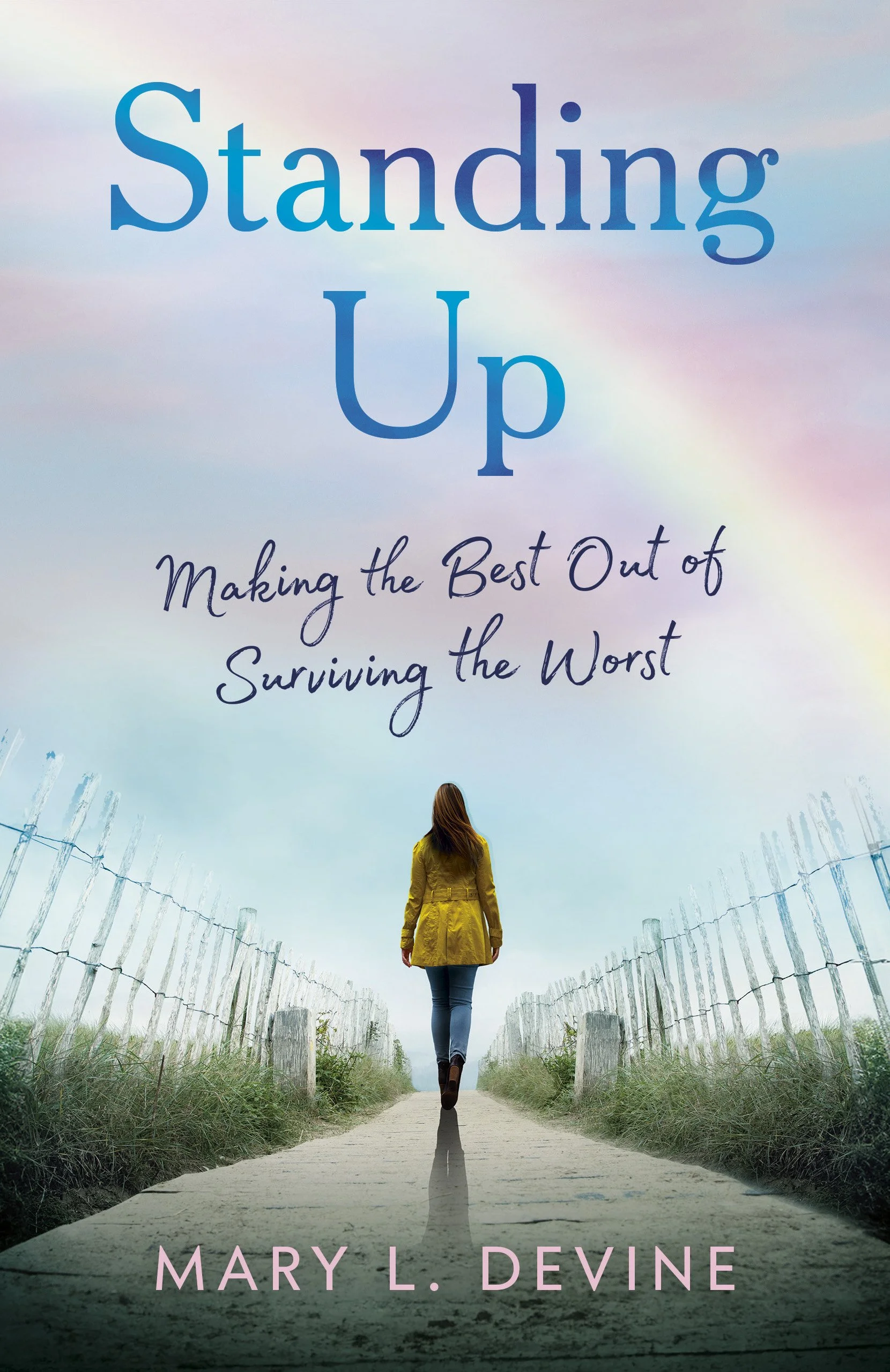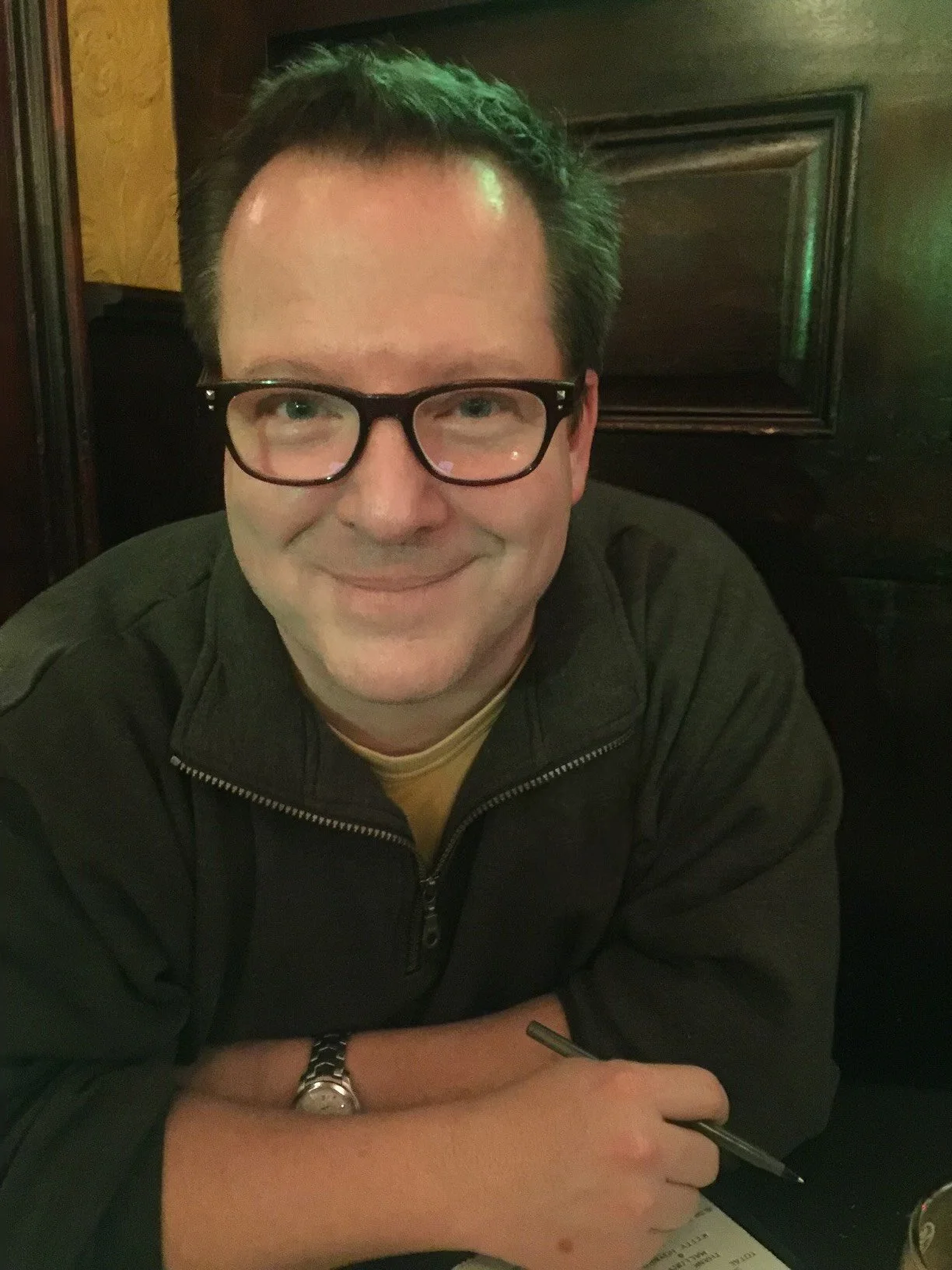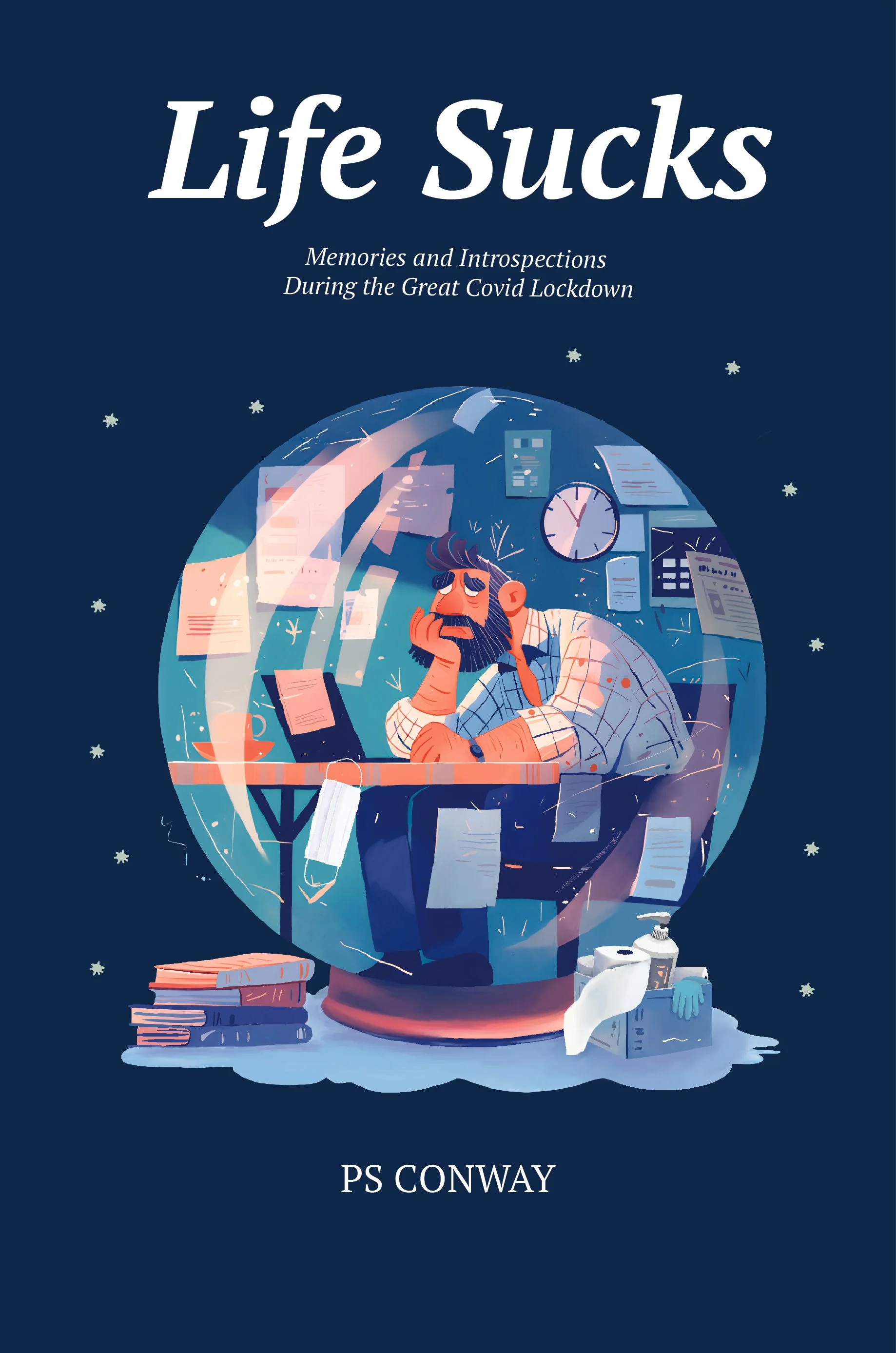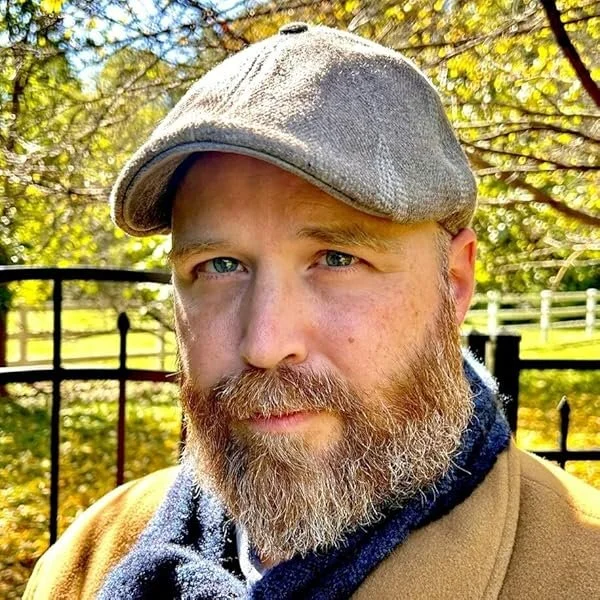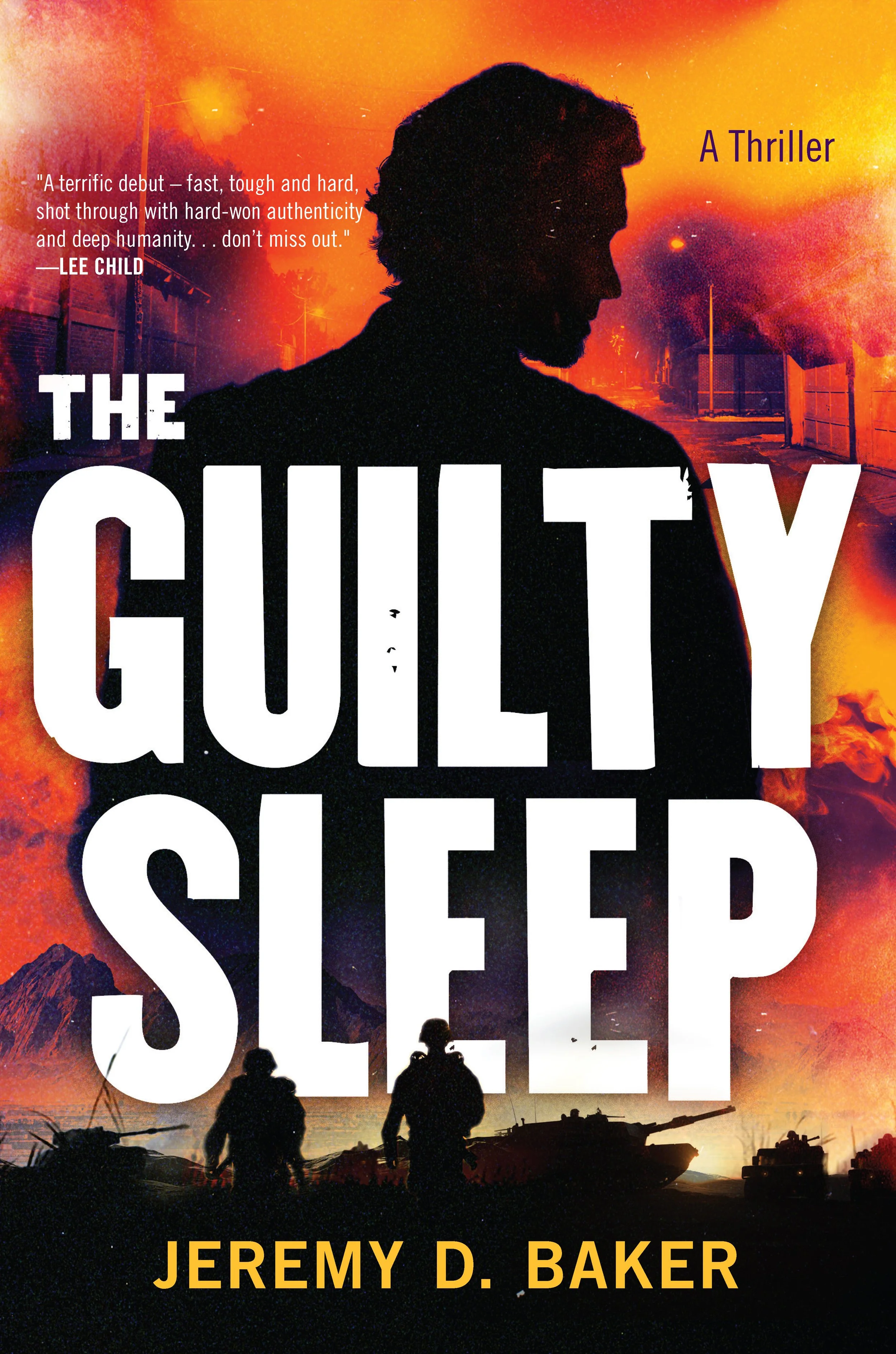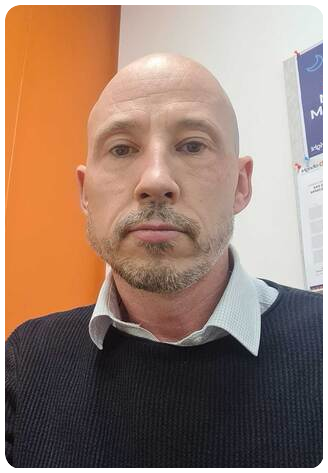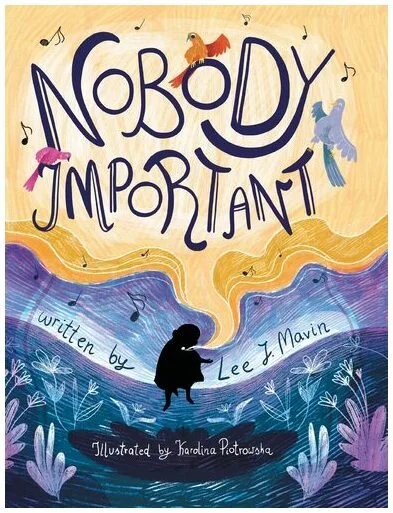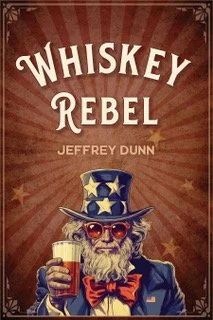Q&A with Tabitha Bailey, Standing Up by Mary L. Devine
/Your memoir takes readers through harrowing experiences of domestic violence. What made you decide to share your story so openly?
I never set out to write Standing Up so openly. The story took on a life of its own, evolving into something far different from what I initially envisioned. At first, I wrote to heal, but shame and fear of judgment kept me from telling the full truth. As I considered publishing, I softened the details, hesitant to expose the raw reality of what I felt I had let happen.
For years, I struggled to shape my story, setting it aside again and again. But as I revisited my past—examining the abuse, how it unfolded, and the emotions I experienced—I realized that what I felt most wasn’t sadness or pain, but accomplishment. I had survived. I refused to see myself as a victim, and I didn’t want others to see me that way either. The story changed, and with it, my purpose.
I no longer wrote just for myself—I wrote for the women still trapped in the cycle of abuse, the ones who feel powerless, afraid, and alone. My goal became clear: to help them see their own strength, to encourage them to take even the smallest step—toward the door, toward freedom, toward a future where they are in control. I know how overwhelming that first step can feel. But once I glimpsed the possibility of something better, that hope became my driving force.
Looking back, what were some of the key moments that helped you realize you needed to leave your abuser?
Over a few years, he slowly cut me off from the people who mattered most. He convinced me to quit my job to help with his business, sold my car so I couldn’t go anywhere without him, and moved us over an hour away from my family and friends. Little by little, he took away my independence until I felt completely trapped.
What finally pushed me to leave? Angels—real ones, here on earth. After one especially violent attack, where he injured my eye and left a deep cut between them, he carried me into the emergency room. That’s where I met Sarah, my first earthly angel. She convinced me to let her call my brother, Russ—my second angel. That phone call was the first real step toward getting out, even though I didn’t fully realize it at the time. Looking back, it was the moment everything started to change.
You describe discovering a reservoir of resilience within yourself—what were some of the biggest factors that helped you survive and heal?
Accepting help was a huge obstacle for me. I was ashamed to need it and dreaded having to explain why.
My next angel was my favorite, funny Aunt Ruth. She was diagnosed with cancer around the same time I found myself homeless, and I moved in with her for the final six months of her life. Helping her helped me. As I spent those last months by her side, I started to feel more in control of my own life. She taught me about living, even as she was dying.
When she passed, she left me what she called “money for karate classes so I could defend myself in my next relationship.” By then, I had started recognizing those angel moments, so when I began hearing commercials on the radio for martial arts training, I took it as a sign and signed up. I became physically stronger and, more importantly, regained my confidence.
Your second marriage brought new challenges, despite initial hope. How did your past experiences shape how you approached those difficulties?
I still hadn’t taken a hard look at my role in the struggles of my first marriage, so I made plenty of mistakes in my second.
Unfortunately, I didn’t have much experience with addiction—aside from what I had learned from my first husband, and that was short-lived. My second husband was great at hiding it, so I had no idea he had fallen off the wagon as early as he did.
By the time it became painfully obvious, he had already been arrested. I was in my final year of college, working toward a degree in criminal justice, while he was headed in the opposite direction. I wasn’t willing to accept the lies, the infidelity, or keep making excuses for him. And when I was done, I was done.
What inspired you to become a detective, especially in the domestic violence unit?
I met Mary Friswell at the martial arts studio. She was incredibly talented—she had even earned a wildcard spot for the Barcelona Olympics. Everyone respected her, including the male competitors, who practically revered her.
Mary was also a police officer, and when I shared my story with her about how I ended up there, she took me under her wing. One night, she invited me on a ride-along while she was on patrol. I was hooked the moment our first call turned out to be a domestic complaint.
How did your personal history influence the way you approached cases? Did it make the work more difficult, or did it give you a unique sense of purpose?
My past experiences gave me a unique advantage. I understood the challenges from a victim’s perspective and had a different way of framing potential solutions. I also faced the same frustrations as my coworkers when victims refused to file charges or show up in court. But one thing I would never ask was, “Why don’t you just leave?”
It’s never that simple. But unless the abuser and victim seek professional help, leaving is often the only real solution. I understood that many victims were financially dependent on their partners, had children to consider, and were emotionally drained from years of abuse. The weight of it all made leaving feel impossible.
With every victim I spoke to, I planted seeds of hope—the one thing they were missing. Ironically, hope is also what keeps many victims stuck. They hope things will go back to how they were in the beginning, before the abuse. They convince themselves it’s just the circumstances—money struggles, family stress, or even their own fault. I shouldn’t have…
I made sure they knew they weren’t alone. I connected them with victim advocates, safe housing options, financial aid, and other resources to help them take that first step toward leaving a violent relationship.
When you encountered a case that mirrored your own experience, how did you navigate the emotional and professional challenges?
When I was assaulted, I didn’t know I was pregnant. I was only about seven or eight weeks along, and because of the attack, lost the baby. It was a devastating time. So when I met the victim who was my age, and learned her boyfriend had dragged her off the couch, shoved her against the wall, and choked her my stomach lurched. Our experience was eerily similar. She lost her baby, too.
When I heard the details of her case, I felt queezy. I sat across from her, sweating through the entire interview, reliving my experience. But what really got to me was that she didn’t want him prosecuted—even though this was the second child he’d killed this way. I felt so many emotions at once: anger at her, frustration at the system, shame for not pursuing justice when I had the chance in my own situation.
During that time, running became my escape and it helped me stay grounded through the tough times. I ran my way through it, burning through a couple of pairs of running shoes, trying to outrun the demons until the day of trial.
In the end, he took a plea deal—Abuse of a Pregnant Female, a felony. The prosecution was relieved, since she refused to testify against him, but I wasn’t. Two babies had died at his hands, and his sentence was 18 months in prison and a year of supervised release. And then? They’d be back together.
I watched her as she left the courtroom. She didn’t look relieved. She looked tired—completely drained. And I knew that look too well. I had worn it myself more times than I could count. It was the face of someone who had fought battle after battle and had nothing left to give.
That’s when my anger faded, and my heart went out to her. I bit my lip, feeling something I hadn’t expected: compassion.
How do you think law enforcement and society, in general, can better support victims of domestic violence?
That’s the million dollar question. Abuse hides in the dark. Shine a light on it for what it is—cowardly. Abusers don’t usually pick fights with their bosses, neighbors, or coworkers. They choose their wives and partners—people they see as easy targets – a sure thing. Stop blaming the victims and start holding abusers accountable for their actions.
Domestic violence is cyclical. Abusers are often exposed to violence in their own homes, which teaches children how to behave—whether to submit or to become abusers themselves. More programs are needed to stop abuse at its source: the abusers. Teaching anger management and conflict resolution skills at a young age can help reduce the number of kids who grow up to use their fists, guns, or words to hurt the people they love.
Writing a memoir about trauma can be emotionally exhausting. What was the hardest part of putting your story on paper?
The shame of allowing it to happen to me – of having to admit that I stayed when I ‘should have’ left. Being honest leaves you wide open to ridicule. I condidered keeping some parts out of it, because it was embarassing and I struggled with the question, “Does it really need to be in there?” Some people will be hurt when they read my book, but there are amazing life savers in it, too, and both stories deserve to be told.
What do you hope readers—both survivors and those unfamiliar with domestic violence—take away from Standing Up?
One in three women and one in five men will experience abuse in their lifetime, and nearly everyone knows someone who has been affected. If you or someone you love has been a victim, the most important thing you can do is start the conversation with compassion. Ask gentle, open-ended questions, and let the conversation unfold naturally. Be mindful of your own emotional limits—only take in what you’re able to handle, and remember, the victim should never have to comfort you.
Educate yourself about domestic violence. Learn about the services available so you can offer informed support. If you’re unsure whether what you’re experiencing is abuse, I’ve included a self-assessment guide at the back of this book that may help. You’ll also find resource pages with numerous support options for people from all walks of life.
No one should have to face abuse alone. Help begins with understanding, and change starts with compassion.
This is no longer just my story—it belongs to every woman who has been told she’s not strong enough, who has been made to believe she has no way out. You do. And when you take that first step, no matter how small, you are already standing up.
About Standing Up by Mary L. Devine:
For true-crime fans, a gripping memoir of a domestic violence survivor who becomes a police detective in the domestic violence unit and is forced to face her demons when her first major case mirrors her own violent assault.
Standing Up invites you on an exhilarating journey with a woman who refuses to be defined by her scars. A pulse-pounding chronicle of survival against all odds, this memoir takes readers along on a plunge into the chilling depths of abusive relationships.
At the tender age of twenty-three, Mary Sweeney-Devine unwittingly stumbled into the clutches of her abuser, igniting anguish and despair. With each heart-wrenching trial, including a hospital visit, she unearthed a reservoir of resilience she didn’t know she possessed. But just when she thought she had weathered the storm, a second marriage to a recovering alcoholic unleashed a tempest of secrets and unforeseen challenges.
Yet Devine emerged from the darkness, fueled by an unyielding determination and a fierce spirit. With the help of unexpected allies, determination, and a sprinkling of humor, she navigated the treacherous terrain of her past—and reclaimed her life with courage. Offering hope to those ensnared in the vicious cycle of abuse, Standing Up is a riveting testament to Devine’s indomitable spirit and a gripping saga that will leave you breathlessly rooting for the victory of the human heart over adversity.
Buy on Amazon Kindle | Paperback | Bookshop.org

